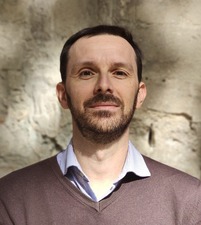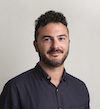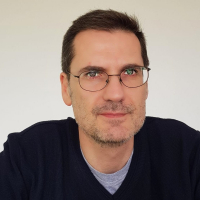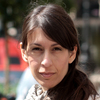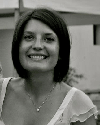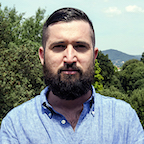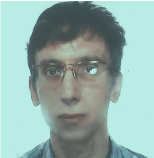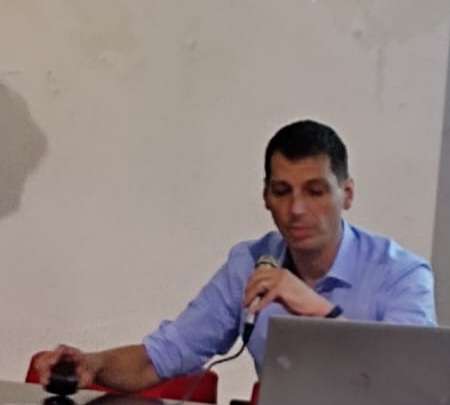Studying at the University of Verona
Here you can find information on the organisational aspects of the Programme, lecture timetables, learning activities and useful contact details for your time at the University, from enrolment to graduation.
Academic calendar
The academic calendar shows the deadlines and scheduled events that are relevant to students, teaching and technical-administrative staff of the University. Public holidays and University closures are also indicated. The academic year normally begins on 1 October each year and ends on 30 September of the following year.
Course calendar
The Academic Calendar sets out the degree programme lecture and exam timetables, as well as the relevant university closure dates..
| Period | From | To |
|---|---|---|
| CuCi 1 A | Sep 25, 2023 | Nov 4, 2023 |
| CuCi 1 B | Nov 13, 2023 | Dec 22, 2023 |
| CuCi 2 A | Feb 19, 2024 | Mar 29, 2024 |
| CuCi 2 B | Apr 9, 2024 | May 31, 2024 |
| Session | From | To |
|---|---|---|
| Sessione invernale | Jan 8, 2024 | Feb 17, 2024 |
| Sessione estiva | Jun 3, 2024 | Jul 26, 2024 |
| Sessione autunnale | Aug 26, 2024 | Sep 21, 2024 |
| Session | From | To |
|---|---|---|
| Sessione straordinaria (a.a. 2022/23) | Apr 2, 2024 | Apr 8, 2024 |
| Sessione estiva | Jul 8, 2024 | Jul 13, 2024 |
| Sessione autunnale | Nov 4, 2024 | Nov 9, 2024 |
| Period | From | To |
|---|---|---|
| Festa di Ognissanti | Nov 1, 2023 | Nov 1, 2023 |
| Festa dell'Immacolata | Dec 8, 2023 | Dec 8, 2023 |
| Vacanze di Natale | Dec 24, 2023 | Jan 7, 2024 |
| Vacanze di Pasqua | Mar 29, 2024 | Apr 1, 2024 |
| Festa della Liberazione | Apr 25, 2024 | Apr 25, 2024 |
| Festa del Lavoro | May 1, 2024 | May 1, 2024 |
| Festa del Santo Patrono | May 21, 2024 | May 21, 2024 |
| Vacanze estive | Aug 12, 2024 | Aug 17, 2024 |
Exam calendar
Exam dates and rounds are managed by the relevant Culture and Civilisation Teaching and Student Services Unit.
To view all the exam sessions available, please use the Exam dashboard on ESSE3.
If you forgot your login details or have problems logging in, please contact the relevant IT HelpDesk, or check the login details recovery web page.
Should you have any doubts or questions, please check the Enrollment FAQs
Academic staff
 luca.bochicchio@univr.it
luca.bochicchio@univr.it
 monica.cristini@univr.it
monica.cristini@univr.it
 dario.donetti@univr.it
dario.donetti@univr.it
 elisa.lerco@univr.it
elisa.lerco@univr.it
 pieralberto.porcedducilione@univr.it; pierre_pordd@yahoo.it
pieralberto.porcedducilione@univr.it; pierre_pordd@yahoo.it
 045 8028732
045 8028732
 alberto.scandola@univr.it
alberto.scandola@univr.it
Study Plan
The Study Plan includes all modules, teaching and learning activities that each student will need to undertake during their time at the University.
Please select your Study Plan based on your enrollment year.
1° Year
| Modules | Credits | TAF | SSD |
|---|
1 module among the following1 module among the following2° Year It will be activated in the A.Y. 2024/2025
| Modules | Credits | TAF | SSD |
|---|
4 modules among the following| Modules | Credits | TAF | SSD |
|---|
1 module among the following1 module among the following| Modules | Credits | TAF | SSD |
|---|
4 modules among the following| Modules | Credits | TAF | SSD |
|---|
Legend | Type of training activity (TTA)
TAF (Type of Educational Activity) All courses and activities are classified into different types of educational activities, indicated by a letter.
Type D and Type F activities
SOFT SKILLS
Find out more about the Soft Skills courses for Univr students provided by the University's Teaching and Learning Centre: https://talc.univr.it/it/competenze-trasversali
CONTAMINATION LAB
The Contamination Lab Verona (CLab Verona) is an experiential course with modules on innovation and enterprise culture that offers the opportunity to work in teams with students from all areas to solve challenges set by companies and organisations.
Upon completion of a CLab, students will be entitled to receive 6 CFU (D- or F-type credits).
Find out more: https://www.univr.it/clabverona
PLEASE NOTE: In order to be admitted to any teaching activities, including those of your choice, you must be enrolled in the academic year in which the activities in question are offered. Students who are about to graduate in the December and April sessions are therefore advised NOT to undertake extracurricular activities in the new academic year in which they are not enrolled, as these graduation sessions are valid for students enrolled in the previous academic year. Therefore, students who undertake an activity in an academic year in which they are not enrolled will not be granted CFU credits.
| years | Modules | TAF | Teacher |
|---|---|---|---|
| 1° 2° | FAI Activities | F |
Edoardo Bianchi
(Coordinator)
|
| 1° 2° | Conference Civici Museum Verona | F |
Alessandra Zamperini
(Coordinator)
|
| 1° 2° | Course of history and art of the C.T.G. | F |
Marco Stoffella
(Coordinator)
|
| 1° 2° | GIS analysis for archaeology | F |
Filippo Carraro
(Coordinator)
|
| 1° 2° | Worlds of Fashion: Themes and Actors | F |
Alessandra Zamperini
(Coordinator)
|
| 1° 2° | San Giorgio di Valpolicella. New studies on the pieve | F |
Fabio Coden
(Coordinator)
|
| 1° 2° | University and DSA - Methods and strategies for tackling study and university studies | F |
Chiara Melloni
(Coordinator)
|
| years | Modules | TAF | Teacher |
|---|---|---|---|
| 1° 2° | FAI Activities | F |
Edoardo Bianchi
(Coordinator)
|
| 1° 2° | Series of lectures: Maria Callas: musica, media, moda, arte | F |
Vincenzo Borghetti
(Coordinator)
|
| 1° 2° | Conference Civici Museum Verona | F |
Alessandra Zamperini
(Coordinator)
|
| 1° 2° | Conference The management of local authority museums: critical issues, innovative models, development prospects | F |
Dario Donetti
(Coordinator)
|
| 1° 2° | Course of history and art of the C.T.G. | F |
Marco Stoffella
(Coordinator)
|
| 1° 2° | GIS analysis for archaeology | F |
Filippo Carraro
(Coordinator)
|
| 1° 2° | Worlds of Fashion: Themes and Actors | F |
Alessandra Zamperini
(Coordinator)
|
| 1° 2° | San Giorgio di Valpolicella. New studies on the pieve | F |
Fabio Coden
(Coordinator)
|
| 1° 2° | Stories and protagonists in Palazzo Miniscalchi | F |
Alessandra Zamperini
(Coordinator)
|
| 1° 2° | University and DSA - Methods and strategies for tackling study and university studies | F |
Chiara Melloni
(Coordinator)
|
| years | Modules | TAF | Teacher | |
|---|---|---|---|---|
| 1° | Sigecweb computer system introduction course | F |
Ada Gabucci
(Coordinator)
|
|
| 1° 2° | Building archaeology and mapping stratigraphy | F |
Elisa Lerco
(Coordinator)
|
|
| 1° 2° | FAI Activities | F |
Edoardo Bianchi
(Coordinator)
|
|
| 1° 2° | Conference Civici Museum Verona | F |
Alessandra Zamperini
(Coordinator)
|
|
| 1° 2° | Course of history and art of the C.T.G. | F |
Marco Stoffella
(Coordinator)
|
|
| 1° 2° | San Giorgio di Valpolicella. New studies on the pieve | F |
Fabio Coden
(Coordinator)
|
|
| 1° 2° | University and DSA - Methods and strategies for tackling study and university studies | F |
Chiara Melloni
(Coordinator)
|
|
| 1° 2° | Illustrated Verona: the future of a cultural heritage. Balance sheets, perspectives and role of studies on the territory | F |
Alessandra Zamperini
(Coordinator)
|
|
| years | Modules | TAF | Teacher | |
|---|---|---|---|---|
| 1° | Sigecweb computer system introduction course | F |
Ada Gabucci
(Coordinator)
|
|
| 1° 2° | Building archaeology and mapping stratigraphy | F |
Elisa Lerco
(Coordinator)
|
|
| 1° 2° | FAI Activities | F |
Edoardo Bianchi
(Coordinator)
|
|
| 1° 2° | Conference Civici Museum Verona | F |
Alessandra Zamperini
(Coordinator)
|
|
| 1° 2° | Course of history and art of the C.T.G. | F |
Marco Stoffella
(Coordinator)
|
|
| 1° 2° | San Giorgio di Valpolicella. New studies on the pieve | F |
Fabio Coden
(Coordinator)
|
|
| 1° 2° | University and DSA - Methods and strategies for tackling study and university studies | F |
Chiara Melloni
(Coordinator)
|
|
| 1° 2° | Illustrated Verona: the future of a cultural heritage. Balance sheets, perspectives and role of studies on the territory | F |
Alessandra Zamperini
(Coordinator)
|
|
History of Modern Art: personalities, styles and contests (2023/2024)
Teaching code
4S010513
Teacher
Coordinator
Credits
6
Language
Italian
Scientific Disciplinary Sector (SSD)
L-ART/02 - HISTORY OF MODERN ART
Period
CuCi 2 A, CuCi 2 B
Courses Single
Authorized
Learning objectives
The aim of the course is to improve the ability of independent analysis and develop a mature mastery of the critical tools of the discipline in relation to specific aspects of the history of modern art.
Prerequisites and basic notions
For the specific context, knowledge, even if only manuals, of the development of eighteenth-century Venetian art is required. Reference manuals: G. Dorfles, C. Dalla Costa, G. Pieranti, Civiltà d'arte. Dal Quattrocento all'Impressionismo, 2, Bergamo, Edizioni Atlas, in the various editions. Matteo Cadario and Cristina Fumarco. The new way of living art, 1. Antiquity and the Middle Ages L. Beltrame, C. Fumarco, The new way of living art, 2. The modern age, Bruno Mondadori school editions.
Program
The masters of Venetian "vedutismo" and the declinations of a "pictorial genre", their clients and European fortune.
With specific attention to Gaspar Van Wittel, Luca Carlevarijs, Johan Richter, Michele Marieschi, Canaletto (in Rome, Venice, his stays in London), Antonio Visentini, Bernardo Bellotto (the Italian itinerary, Vienna, Munich, Dresden, Warsaw), Francesco Guardi.
Bibliography
Didactic methods
Teaching methods: frontal lectures with a study day in Venice to be agreed upon.
Learning assessment procedures
Assessment: written test with open-ended and specific questions.
Evaluation criteria
Assessment criteria: The student's ability to formulate an independent argument on authors, problems and stylistic issues based on the questions delivered in the written test will be assessed. Ability to independently express connections and comparisons between personalities and works to which they belong will be especially evaluated.
Criteria for the composition of the final grade
Composition of the final grade: The final test can be divided into several modules, which will be assigned a partial grade. The average of the partial grades assigned to each part will result in the final grade recorded on the student's transcript.
Exam language
italiano
Career prospects
Module/Programme news
News for students
There you will find information, resources and services useful during your time at the University (Student’s exam record, your study plan on ESSE3, Distance Learning courses, university email account, office forms, administrative procedures, etc.). You can log into MyUnivr with your GIA login details: only in this way will you be able to receive notification of all the notices from your teachers and your secretariat via email and soon also via the Univr app.
Double degree
The University of Verona, through a network of agreements with foreign universities, offers international courses that enable students to gain a Double/Joint degree at the time of graduation. Indeed, students enrolled in a Double/Joint degree programme will be able to obtain both the degree of the University of Verona and the degree issued by the Partner University abroad - where they are expected to attend part of the programme -, in the time it normally takes to gain a common Master’s degree. The institutions concerned shall ensure that both degrees are recognised in the two countries.
Places on these programmes are limited, and admissions and any applicable grants are subject to applicants being selected in a specific Call for applications.
The latest Call for applications for Double/Joint Degrees at the University of Verona is available now!
Student login and resources
Prova finale
Alla prova finale per il conseguimento della laurea magistrale in Storia delle arti sono assegnati 24 cfu. La prova finale consiste nella preparazione e nella discussione di una tesi di laurea magistrale, di non meno di 120 pagine scritte, elaborata in modo originale dallo studente sotto la guida di un docente relatore; è prevista la figura del correlatore. L'argomento della prova finale deve riguardare uno degli insegnamenti del piano di studi. I laureati devono saper dimostrare con il lavoro di tesi di aver applicato le loro conoscenze, di possedere capacità di comprensione e abilità nella risoluzione di problemi e nell'affrontare tematiche nuove in modo autonomo e in un contesto di ricerca e di progettazione originale. La discussione della prova finale ha luogo davanti a una Commissione composta secondo le relative norme del Regolamento didattico di Ateneo. Per la prova finale è previsto un massimo di 7 punti. Per l'attribuzione del punteggio la commissione si attiene ai seguenti criteri: 1) originalità dell'elaborato; 2) efficacia e coerenza nelle argomentazioni; 3) qualità della scrittura; 4) capacità dello studente di illustrare e discutere adeguatamente il suo lavoro davanti alla commissione. La votazione è espressa in centodecimi, a cui la Commissione può aggiungere, in casi di eccellenza, la distinzione della lode.
Adempimenti amministrativi e scadenze domanda di laurea
Calendari discussione e proclamazione di laurea

